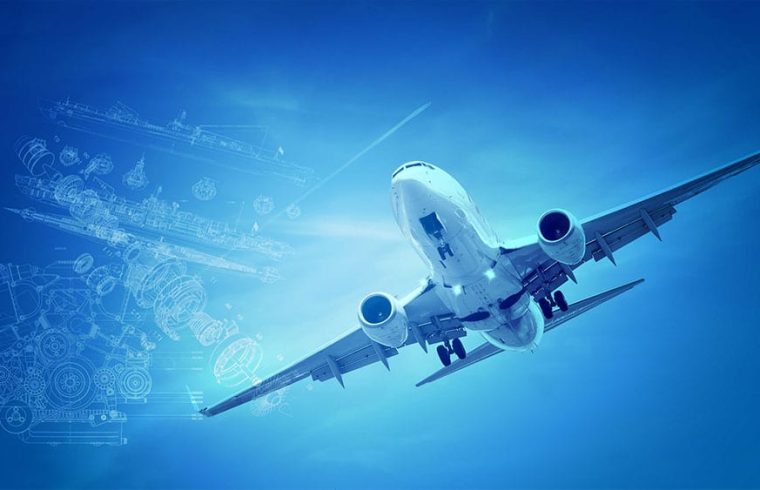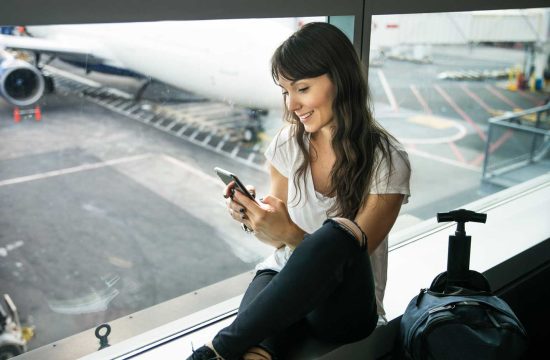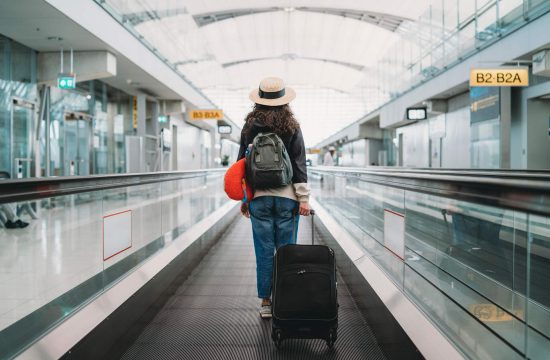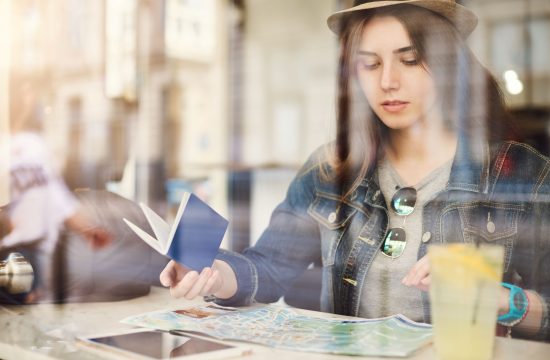The travel industry is experiencing a technological revolution, significantly changing how we book flights. From artificial intelligence and machine learning to blockchain and virtual reality, technology is making the flight booking process more efficient, personalized, and secure. This blog explores the future of air travel and the innovative technologies that are transforming flight booking.
Artificial Intelligence and Machine Learning
- Personalized Recommendations: AI and machine learning algorithms analyze vast amounts of data to provide personalized flight recommendations. These systems consider user preferences, search history, and travel patterns to suggest the best flights, making the booking process more tailored to individual needs. This means that frequent travelers can receive alerts about flight deals and promotions that match their past travel behavior, creating a more efficient and enjoyable booking experience.
- Dynamic Pricing: AI-driven dynamic pricing models adjust fares in real-time based on demand, competition, and other factors. This ensures that airlines optimize their revenue while offering competitive prices to travelers. For instance, if a particular route is in high demand, prices might increase, whereas low-demand flights might see a decrease in price to attract more customers.

Example: Platforms like Google Flights and Skyscanner use AI to suggest flights based on your past searches and preferences, helping you find the best deals tailored to your travel habits. These platforms continuously learn from user interactions, improving their recommendations over time.
Blockchain Technology
- Secure Transactions: Blockchain technology provides a decentralized and secure method for processing transactions. This can reduce fraud and increase transparency in the flight booking process. Blockchain’s immutable ledger ensures that once a transaction is recorded, it cannot be altered, providing a high level of security for both airlines and travelers.
- Loyalty Programs: Blockchain can revolutionize airline loyalty programs by creating a unified and secure platform for managing rewards. This allows travelers to easily earn and redeem points across different airlines and partners. A blockchain-based loyalty program can also offer real-time updates on points and miles, making it easier for travelers to keep track of their rewards.

Example: Companies like Winding Tree are leveraging blockchain to create decentralized travel marketplaces, offering more secure and efficient booking options. By cutting out intermediaries, these platforms can reduce costs and provide better deals to consumers.
Augmented Reality (AR) and Virtual Reality (VR)
- Virtual Tours: VR allows travelers to take virtual tours of aircraft cabins, helping them choose the best seats and understand the amenities offered. This enhances the pre-booking experience and helps travelers make more informed decisions. VR tours can also include 360-degree views of the aircraft, providing a more immersive experience.
- AR Navigation: AR can assist travelers in navigating airports, providing real-time directions and information about gate changes, amenities, and more. AR applications can overlay digital information on the real-world environment, making it easier for travelers to find their way in busy airports.

Example: Some airlines and travel agencies offer VR tours of their planes, allowing customers to explore seating options and in-flight services from the comfort of their homes. This technology can also be used to showcase destinations, giving travelers a glimpse of what to expect before they arrive.
Mobile Applications and Voice Assistants
- Mobile Booking: Mobile apps have become a primary channel for booking flights, offering convenience and flexibility. Enhanced app features include real-time notifications, mobile boarding passes, and seamless payment options. Travelers can manage their entire journey from their smartphones, from booking to check-in to boarding.
- Voice Search and Assistants: Voice-activated assistants like Amazon’s Alexa and Google Assistant enable users to search for flights, check prices, and make bookings using voice commands, making the process hands-free and efficient. This technology is particularly useful for busy travelers who need quick and easy access to travel information.
Example: Airlines like Delta and Emirates have robust mobile apps that allow travelers to book flights, manage itineraries, and receive real-time updates directly on their smartphones. These apps also offer features like seat selection, meal preferences, and loyalty program integration.
Big Data and Predictive Analytics
- Demand Forecasting: Airlines use big data and predictive analytics to forecast demand, optimize routes, and set competitive pricing. This helps in reducing operational costs and offering better prices to consumers. By analyzing historical data and current trends, airlines can make more informed decisions about flight schedules and pricing strategies.
- Customer Insights: Analyzing customer data allows airlines to understand traveler behavior and preferences, enabling them to offer personalized promotions and services. For example, an airline might offer a discount on a future flight to a customer who frequently travels on a particular route.
Example: Predictive analytics tools like Hopper analyze historical flight data to predict future prices, helping travelers determine the best time to book flights. By leveraging big data, these tools can provide insights that help travelers save money and plan their trips more effectively.
Biometric Technology
- Seamless Check-In: Biometric technology, such as facial recognition and fingerprint scanning, is streamlining the check-in process. This reduces wait times and enhances security at airports. Travelers can check in, drop off their bags, and go through security without needing to present physical documents, making the process faster and more efficient.
- Boarding Efficiency: Biometric boarding gates use facial recognition to verify passengers’ identities, speeding up the boarding process and reducing the likelihood of errors. This technology can also help airlines ensure that all passengers are accounted for, reducing the risk of delays.

Example: Airports like Singapore Changi and airlines like Delta are implementing biometric systems to create a seamless and efficient travel experience. These systems are designed to enhance security while providing a more convenient experience for travelers.
Internet of Things (IoT)
- Smart Baggage Tracking: IoT devices allow travelers to track their baggage in real-time, reducing the risk of lost or delayed luggage. Smart tags and sensors provide updates on the location and status of baggage throughout the journey. Travelers can receive notifications on their smartphones, giving them peace of mind about the whereabouts of their luggage.
- In-Flight Connectivity: IoT enhances in-flight experiences by providing real-time updates on flight status, weather conditions, and connecting flight information. This technology can also enable personalized in-flight entertainment and connectivity services, making the journey more enjoyable for travelers.
Example: Companies like Blue Ribbon Bags offer IoT-enabled baggage tracking services, providing peace of mind to travelers concerned about lost luggage. By integrating IoT technology, these services can offer real-time updates and enhanced security for baggage handling.
Sustainable Travel Technologies
- Eco-Friendly Options: Technology is enabling airlines to offer more sustainable travel options. This includes optimizing flight routes to reduce fuel consumption and providing travelers with information on carbon offsets. By using AI and big data, airlines can identify the most efficient routes, reducing their environmental impact.
- Green Innovations: Advances in aircraft technology, such as electric planes and biofuels, are paving the way for more environmentally friendly air travel. These innovations are designed to reduce carbon emissions and promote sustainable travel practices.
Example: Airlines like KLM offer carbon offset programs and use AI to optimize flight paths, reducing their carbon footprint and promoting sustainable travel. By participating in these programs, travelers can contribute to environmental conservation efforts.
Enhanced Customer Support
- AI Chatbots: AI-powered chatbots provide 24/7 customer support, assisting travelers with booking queries, flight changes, and other inquiries. This ensures quick and efficient resolution of issues. Chatbots can handle a wide range of tasks, from answering frequently asked questions to processing refunds and rebooking flights.
- Multilingual Support: Advanced language processing technologies enable chatbots and virtual assistants to offer support in multiple languages, catering to a global audience. This ensures that travelers from different regions can receive assistance in their native language.
Example: Airlines like Lufthansa use AI chatbots to handle customer inquiries, providing instant assistance and improving customer satisfaction. These chatbots are designed to offer personalized support, enhancing the overall customer experience.
Future Trends and Innovations
- Hyperloop and Supersonic Travel: Emerging technologies like the Hyperloop and supersonic jets promise to revolutionize travel by significantly reducing travel times. These innovations could transform the future of long-haul flights, making it possible to travel between continents in a matter of hours.
- Space Travel: With companies like SpaceX and Blue Origin making strides in commercial space travel, the concept of space tourism is becoming a reality. This opens up new frontiers for the travel industry, offering unique and exciting travel experiences.
Example: The development of supersonic jets by companies like Boom Supersonic aims to cut flight times in half, potentially changing the landscape of air travel. These jets are designed to fly at speeds faster than the speed of sound, offering travelers a faster and more efficient way to reach their destinations.
The Role of Travel Agencies
- Tech-Savvy Agencies: Travel agencies are increasingly adopting advanced technologies to enhance their services. This includes using AI for personalized recommendations and blockchain for secure transactions. By integrating these technologies, travel agencies can offer more efficient and reliable services to their clients.
- Human Touch: Despite technological advancements, the human touch remains important. Travel agencies combine technology with personalized service to offer a comprehensive booking experience. Experienced travel agents can provide valuable insights and assistance, ensuring that travelers have a smooth and enjoyable journey.
Example: Agencies like Travel Leaders use AI and machine learning to provide personalized travel itineraries while maintaining a high level of customer service. By leveraging technology, these agencies can offer more efficient and customized travel solutions.
Future of Loyalty Programs
- Personalized Rewards: AI and machine learning enable airlines to offer personalized rewards based on individual travel habits and preferences. This makes loyalty programs more attractive and engaging for travelers. Personalized rewards can include discounts, upgrades, and exclusive offers tailored to each traveler’s needs and preferences.
- Blockchain Integration: Blockchain can simplify the management of loyalty programs, making it easier for travelers to earn and redeem points across multiple airlines and partners. This can lead to more flexible and user-friendly loyalty programs.
Example: Airlines like British Airways are exploring blockchain technology to enhance their loyalty programs, offering more secure and efficient ways for travelers to manage their rewards. By integrating blockchain, these programs can provide a seamless and transparent experience for members.
Impact of COVID-19 on Flight Booking Technology
- Contactless Travel: The pandemic has accelerated the adoption of contactless technologies, including mobile boarding passes, biometric check-ins, and digital health passports. These technologies reduce physical contact and enhance safety at airports.
- Flexible Booking Policies: In response to the uncertainties caused by the pandemic, airlines have implemented more flexible booking policies, allowing travelers to change or cancel flights with ease. This flexibility has become a key factor for travelers when choosing airlines.
Example: Airlines like Emirates have introduced comprehensive safety measures and contactless technologies to ensure a safe travel experience during the pandemic. These measures include enhanced cleaning protocols, contactless check-in options, and health screening procedures.
Conclusion
The future of air travel is being shaped by rapid advancements in technology. From AI and blockchain to VR and biometric systems, these innovations are transforming the flight booking process, making it more efficient, secure, and personalized. As technology continues to evolve, travelers can expect even more exciting developments that will enhance their travel experiences. Enjoy your happy travels with Travel Touriz!!!





